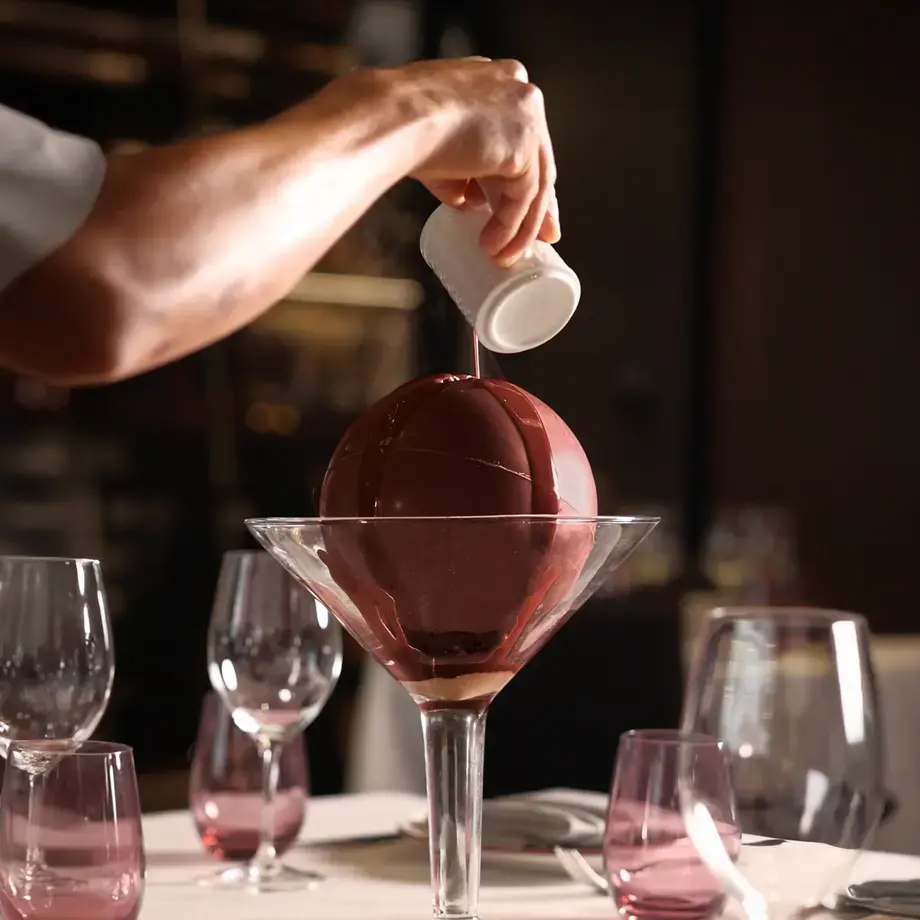Paul Sorgule is a chef with years of experience working in professional kitchens. His blog, Harvest America Ventures, offers up a wealth of useful insight in what it actually takes to cut it in the kitchen.
One of Sorgule's latest posts is aimed at those starting out in the kitchen with a list of 16 points to consider when you're getting your break. Sorgule points out that this advice can apply to a fast food gig as much as they can apply to a fine dining establishment.
Some of the advice is common sense, while some is the exact sort of inside knowledge needed for starting work in a kitchen on the perfect footing.
GET THE LAY OF THE LAND
It is your responsibility as a cook to find our where and how items are stored, how the equipment works, who to go to for specific needs, how needs are relayed to the person responsible, and the general system of operation that a kitchen relies on day in and day out. This doesn’t mean that you can’t ask questions, but your learning curve should be quick. After a day or two the last thing in the world you should do is ask the sous chef or chef where they store the butter or fresh herbs.
UNNECESSARY QUESTIONS ARE NOT WELCOME
There is a commonly used adage that “no question is a dumb question”. This couldn’t be further from the truth. Any question that could be figured out independently by the person asking, any question that contains the obvious answer in its context, and any question that has already been answered before is a dumb question. Take notes! “Chef – do you want those chiffonade vegetables cut the way you showed me yesterday?” Now that’s a dumb question. “Chef, since I have 100 chicken breasts to prepare for service do they still need to be caramelized first?” – no comment.
PERSONAL TOOLS ARE VERY PERSONAL
This still remains one of the most important rules in the kitchen to learn – a cook or chef’s personal tools are his or her personal tools. These tools allow that cook to perform at a certain level, they have history, they are an investment, they are cared for and sharpened with a passion typically reserved for relationships with people – DON’T TOUCH THEM, DON’T LET OTHERS TOUCH THEM, DON’T EVEN ASK – STAY AWAY! If you touch another cook’s tools you will encounter the rage of a person who acts as if you inappropriately touched a friend or partner. Respect other’s tools.
IT’S ALL ABOUT MISE EN PLACE
Others in the kitchen will judge you on how organized you are, how set your station is, and how well thought out your work system might be. Everyone in the kitchen knows that mise en place is the foundation for success and those who are not organized, not ready – will bring down the rest of the group.
CLEAN AS YOU GO
Efficient cooks work clean. You can look at a cook’s station and know immediately if they are capable of handling a busy, stressful night. Good cooks work clean and they take pride in this fact. Whenever there is a spare minute, a good cook is tidying up their station, washing down counters, sanitizing tools, refolding aprons, and taking a visual inventory of their set-up. This is how efficient cooks roll and how they maintains calm during the busiest times of a service shift.
WASTED MOVEMENT WEARS THIN ON EVERYONE
Back to mise en place. The best cooks set-up their workstation so that only a pivot step is needed to reach pans, mise en place, towels, wines for reduction, plates, seasonings, and POS tickets. Wasted steps wear your out – plan to avoid them.
LET THEM KNOW WHERE YOU ARE
Kitchens are busy, even chaotic at times. Although people should never run, they are walking as quickly as they can. Cooks rarely walk empty handed, so as they move with determination they probably have something fragile, sharp, hot, or wet. Professional cooks always announce their presence to avoid collisions: “behind, corner, hot, heads up, lifting, or knocking when entering or leaving a walk-in cooler – all of these cures are critical steps in keeping a kitchen safe.
KNOW YOUR INGREDIENTS
It is the cook’s responsibility to know the ingredients he or she works with. Know what they look like, where and how they are stored, what their purpose might be, what their flavor profile is, how to determine level of freshness. Blank stares when a cook asks how to determine the difference between a top round and 109 rib, broccoli from broccolini or broccoli raahb, or cilantro from parsley are a forewarning that anger and disgust are not far behind. Study and inquire early on, but make sure that product ID becomes your new language.
KNOW YOUR COOKING METHODS and PROCESSES
Sure recipes are important and should be part of the control systems in an operation that help to ensure consistent costs and quality, however, it is not that difficult to memorize and consistently use cooking methods, as they should be. If you know how to braise- you can braise anything; if you know how to grill-you can grill anything; and if you know how to finish a sauce monte au beurre – then it is second nature to do so.
PRIORITIZE YOUR WORK
When given a series of tasks to perform – a competent cook begins by determining the time it takes for each product and/or step, and which item feeds into another preparation. Set your prep sheet up in this manner – make it a habit.
RESPECT EVERYONE’S SPACE
People, in any situation, require enough space to perform or feel comfortable. Those same people will fill that space in a manner that works for them. If their space is infringed on then they become less efficient and frustrated and the result is tension and less than stellar performance. When a cook identifies his or her work area then respect it and stay behind your own line of demarcation.
WORK FAST, BUT DON’T SACRIFICE QUALITY
One of the critical skills in a kitchen is a “sense of urgency”. There will always be too much work to accomplish in too short a period of time – it still needs to get done. The solution is to organize, prioritize, and learn to work faster. At the same time there can never be a slip in quality or acceptance of mediocre work. Cut faster; learn to multi-task, work from lists, set goals, hustle, hustle, and hustle. Nine times out of ten chefs will state that one serious shortcoming of culinary school graduates is that they don’t know how to multi-task or hustle. Act like your life depends on getting everything done.
LEARN THE CHAIN OF COMMAND
The kitchen chain of command (brigade) dates back to the days of Escoffier. The system developed in the 1880’s is still appropriate today. Of most importance is that cooks understand and respect the chain of command: who does what, who is responsible, who to go to in certain situations, and above all else know that in the moment: “Yes Chef” is the only answer.
TRUST IS EARNED – IT IS NOT A GIVEN
As a new cook keep in mind that you have yet to earn the trust of established members of the team. It may take time for this trust to occur, but it will only take a second to lose. Trust is based on how you act, perform, and respect others in the moment. Trust must be earned again, and again – every day. Without trust the kitchen comes to a standstill.
TAKE NOTES – REMAIN A STUDENT
Keep a small spiral notebook in your pocket. Write down what you learn every day – no mater how small – write it down. How many eggplants does it take to make parmigiana for 150 guests? How much stock does it take to make a quart of demi? How does the chef want the salmon portioned? How is that new menu feature plated? What is the shelf life of fresh round fish on ice? How did the chef determine what to charge for that feature? What does the station map for sauté look like?
EVERY PLACE DOES THINGS DIFFERENTLY
You should always assume that what you learned in school or on the job at another operation is a correct way of accomplishing certain tasks, however, “When In Rome – Do as The Romans Do.” A new operation, a new chef, and a new manager – these individuals have their own way of accomplishing tasks, preparing items, and plating dishes. Know that in this operation that is how it should be done. As time goes by you may be able to offer your personal ideas and experiences, and then – feel free. But today you are working in Rome.








